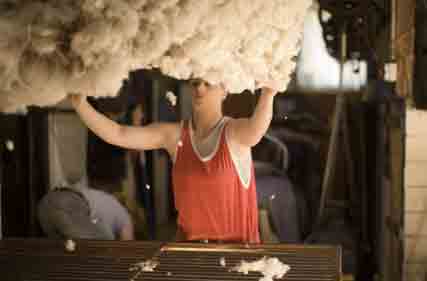
The transient nature of the workforce, is seeing ever increasing numbers of shearers and wool handlers travelling across both sides of the ditch for work experience.
Australian Wool Innovation (AWI), along with Australia’s largest shearing and wool handling training organisation, SCAA Shearer Wool Handler Training Inc (SCAA SWTI), have signed a joint Memorandum of Understanding (MOU) with New Zealand’s shearing training body, Elite Wool Industry Training NZ.
The MOU is in response to the global shortage of shearers and skilled woolhandlers, which Australian wool and sheep meat producers have endured for the past two years, resulting in the price of shearing increasing by more than 20%.
The problem is not confined to Australia which has resulted in New Zealand and northern hemisphere farmers competing for the same pool of shearing staff. Working with New Zealand, in the first instance is going to be more productive and lead to better outcomes for both countries.
The organisations are realistic about the impact of such an MOU. SCAA SWTI’s CEO Glenn Haynes said “the agreement is not a silver bullet for the issue of skills shortages but it will provide a platform that can align the approach to solving or at least mitigating some of the training issues that both nations are experiencing at the moment.
“This agreement will allow for the training organisations to work together on shearing and wool handler training consistencies, across the Tasman. For example, it will help ensure that when young kiwis come to Australia to shear, their shearing pattern and technique will be consistent and align with what the Australia market requires. It will also ensure that young Australians travelling to New Zealand will have a better understanding of the New Zealand Crossbred shearing techniques, as will the wool handlers.
The transient nature of the workforce, is seeing ever increasing numbers of shearers and wool handlers travelling across both sides of the ditch for work experience.
Mr Haynes said ”with the level and experience of the trainers involved in the combined organisations, the knowledge that can be shared from both sides can only be beneficial for the industry. “
Tom Wilson, Elite Wool Industry Training CEO, says he’s delighted with the opportunity to align and coordinate training with his Australian colleagues, “in the past New Zealand and Australia have worked closely to manage a trained workforce on both sides of the Tasman. It is great to have the opportunity to provide a strong level of support to the industry again – we expect this to develop strong opportunities for young people to get into this great industry both here in New Zealand and in Australia”.
AWI’s head of Shearer Training, Craig French has supported the initiative from the start. He sees the additional benefits from working with our NZ counterparts.
“The shearer and wool handler shortage is an international problem and therefore we need to take a broader approach to addressing it. Over the next 3 years, Australian wool growers will invest more than $10 million into shearer and wool handler training. We are best to have an agreement with our Trans-Tasman counterparts, to ensure this investment is not one-sided and in sync with what is happening in New Zealand. This MOU will allow this process to happen more easily,” said Mr French
The Secretary for the Shearing Contractors Association (SCAA), Jason Letchford said “I’m excited about the additional benefit of being able to facilitate the transition of learner shearers and wool handlers between the countries. This will help to accommodate the seasonal cycles and better ensure consistency of work for new entrants to the industry, an issue that has been the Achilles Heel for learner shearers in the past.
-AWI
